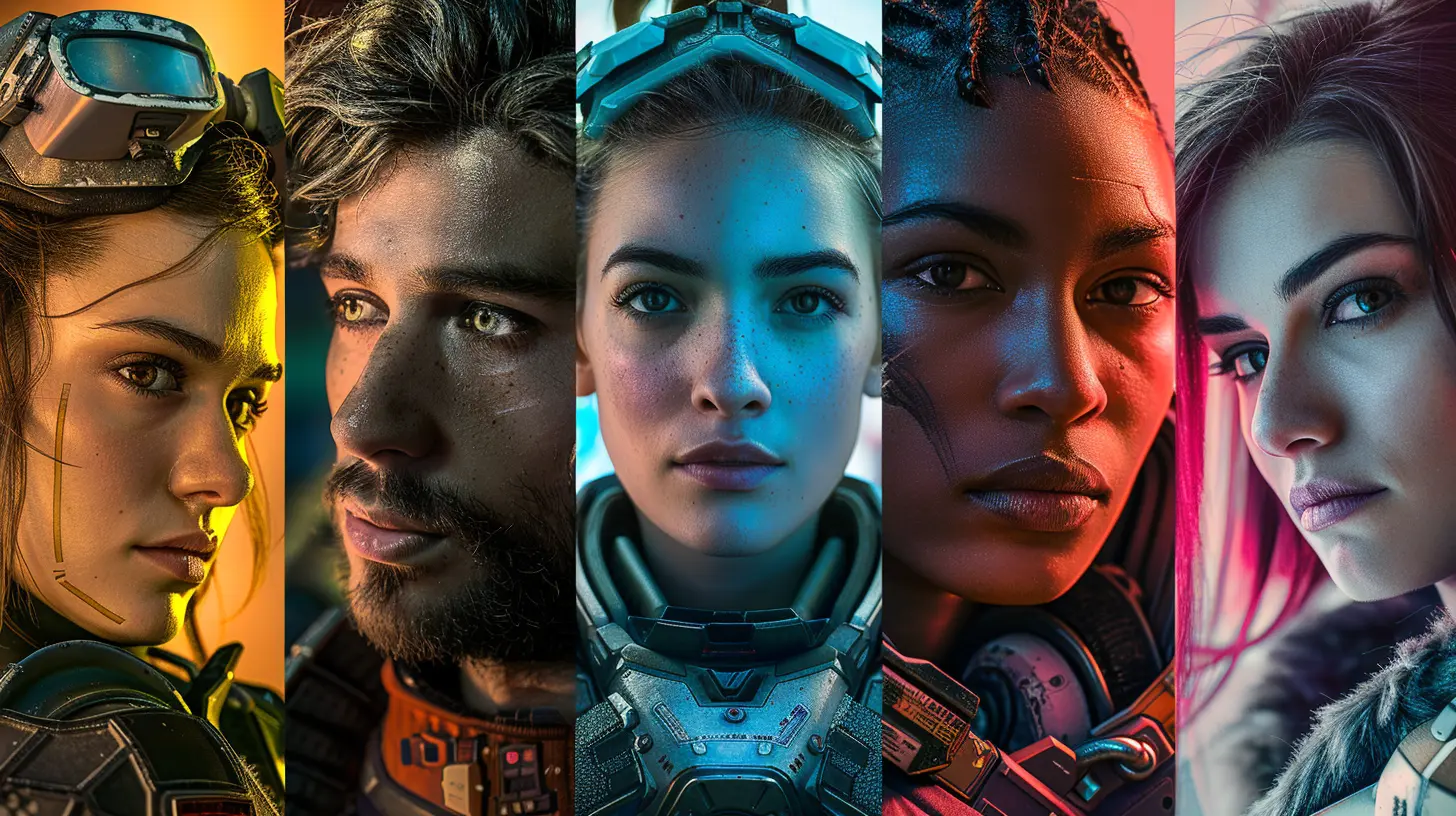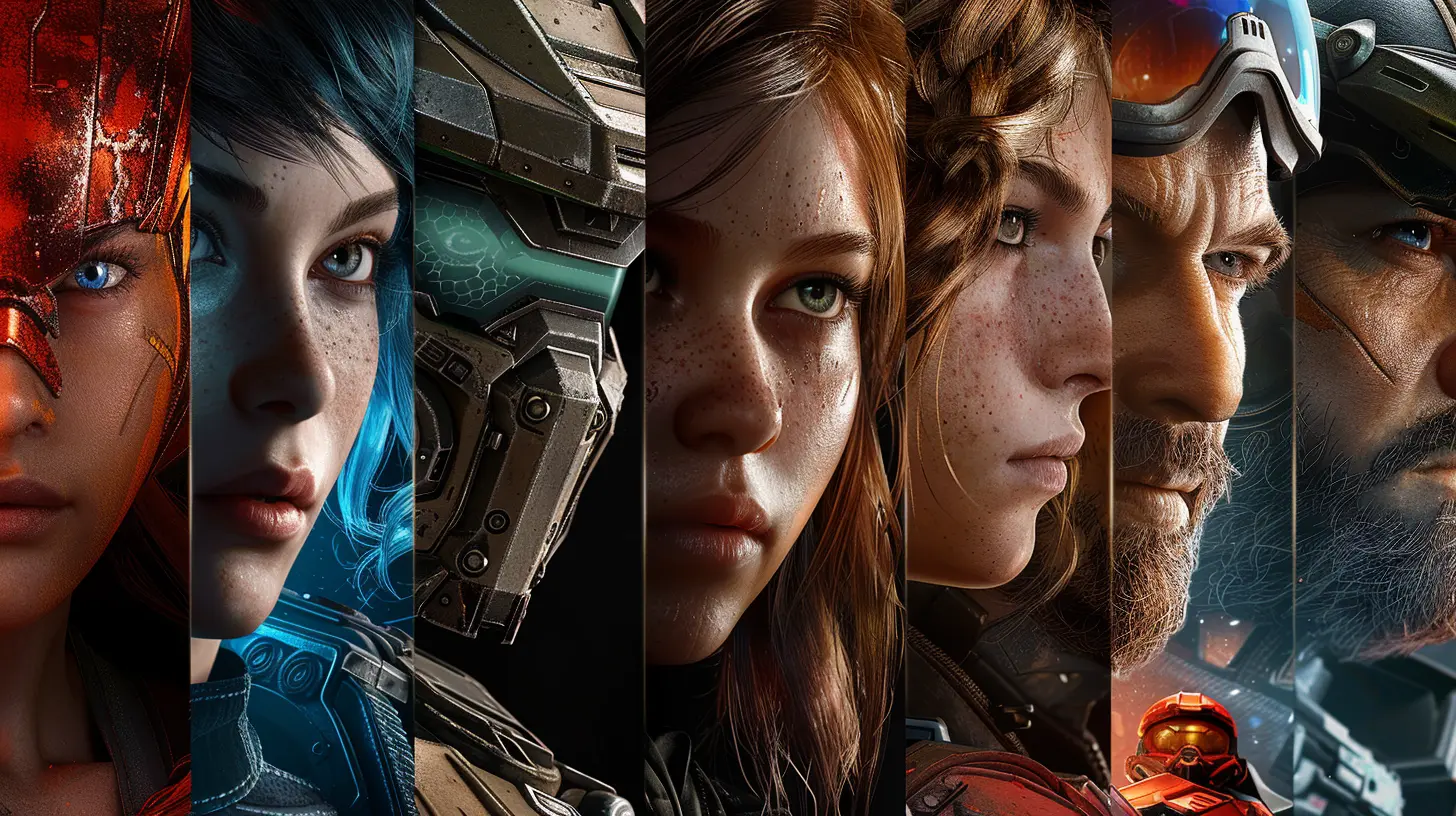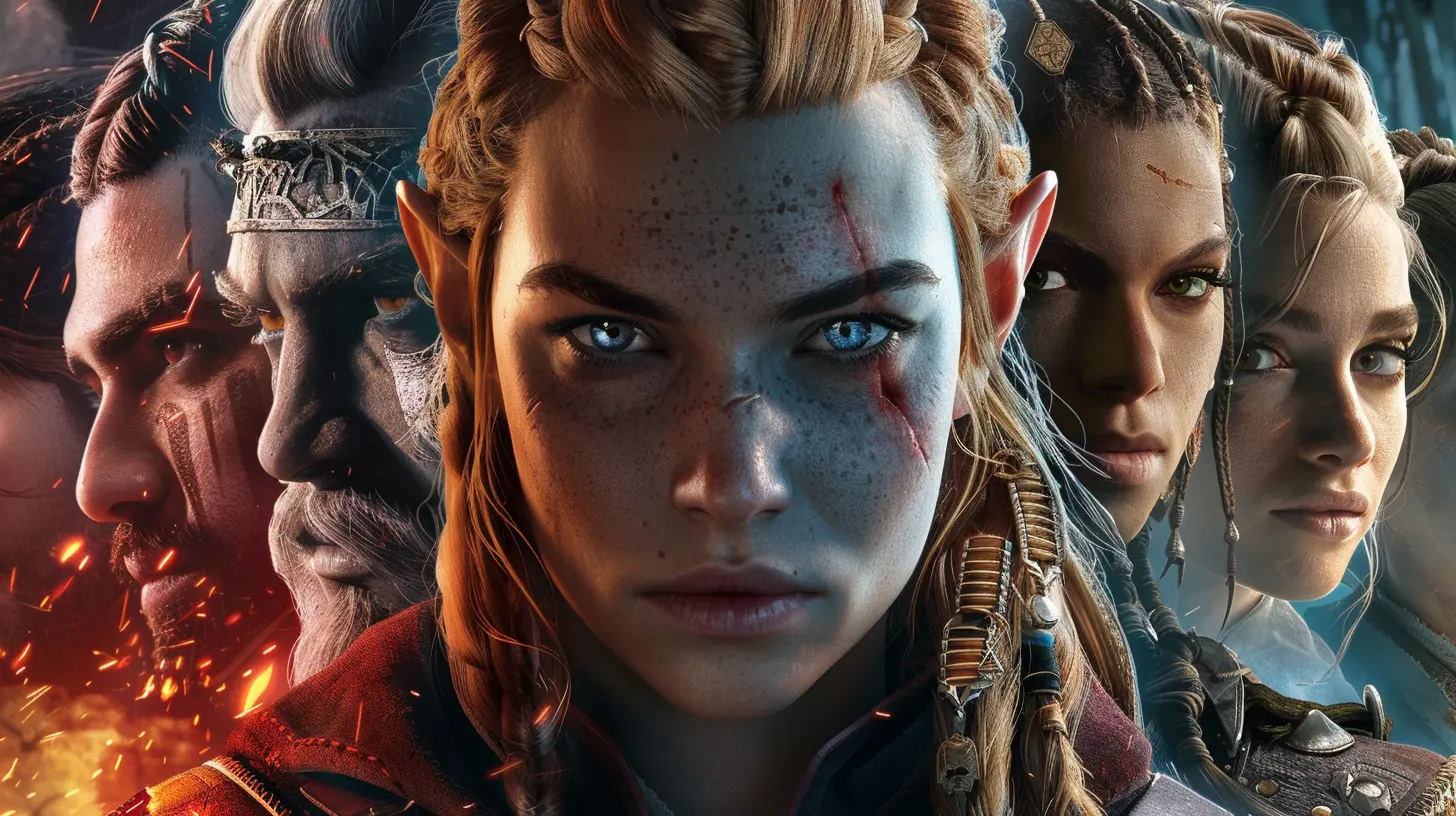The Importance of Diversity in Video Game Voice Acting
8 August 2025
Let’s be honest—video games have come a long way from the pixelated worlds and chiptune soundtracks of the ‘80s. Today’s games are sprawling, immersive, and deeply emotional, weaving intricate stories that rival blockbuster films. But here’s the thing: when you dive into a game and hear a character speak, something magical happens. That voice can transport you, make you believe in the world you’re exploring, and connect you to the character on a personal level. And this is where diversity in video game voice acting becomes not just important but absolutely essential.
In an industry where characters are as diverse as the players themselves, having a rich variety of voices adds nuance, authenticity, and relatability to the gaming experience. So, let’s dig into why diversity in video game voice acting matters and how it impacts the games we love.
Representation: Seeing (and Hearing) Ourselves in Games
Have you ever played a game and thought, “Wow, this character really feels like me”? That’s the power of representation. It’s not just about what the characters look like, but also how they sound. A person’s voice carries depth—it reflects culture, identity, and personal experiences. When video game developers include a variety of voices, players from different backgrounds feel seen and heard. It’s like being invited to a party and realizing they played your favorite song. You feel included.Now, imagine playing a game with a character from a specific cultural background, but their voice sounds completely inauthentic. It’s jarring, right? It breaks immersion and reminds you that what you’re experiencing isn’t real. Authentic voice acting avoids this pitfall by hiring diverse voice actors who can speak from their lived experiences. It’s not just about sounding right—it’s about feeling right.
The Risk of Stereotypes and Misrepresentation
Here’s a truth bomb: when diversity in voice acting is neglected, stereotypes tend to creep in. Over the years, we’ve seen countless examples of harmful tropes, from exaggerated accents to flat-out offensive portrayals. These stereotypes don’t just misrepresent cultures—they perpetuate ignorance and bias.For example, a character from a specific ethnic background might be voiced by someone who doesn’t share that background, leading to awkward or cartoonish performances. It’s like trying to paint a masterpiece with the wrong colors—no matter how skilled the artist is, the result feels off. When casting directors don’t prioritize diversity, they run the risk of oversimplifying complex identities into caricatures.
Authenticity in voice acting doesn’t just protect against harmful stereotypes. It showcases the richness and complexity of different cultures, opening the door to greater understanding and acceptance. It’s about moving away from the “one-size-fits-all” mentality in storytelling.
Why Authenticity in Voice Acting Matters
Let’s keep it real: authenticity always enhances storytelling. When you hear a character speak in a way that feels genuine, you’re more likely to connect with them. Think of it like tasting homemade cooking versus fast food. That extra care, the attention to detail—it makes all the difference.Take games like The Last of Us Part II, where characters from diverse backgrounds are portrayed with incredible emotional depth and nuance. The voice actors, backed by authentic performances, bring these characters to life in ways that feel raw and real. This kind of storytelling wouldn’t be possible without diverse voices behind the microphone.
Authenticity also matters when tackling stories focused on cultural or linguistic accuracy. Games like Ghost of Tsushima or Assassin’s Creed rely on voice actors who can embody the essence of specific cultures. It’s not just about speaking the language—it’s about respecting the culture and delivering a performance that resonates with players on a deeper level.
The Business Case for Diverse Voice Acting
Alright, let’s talk numbers for a second. Diverse voice acting isn’t just about ethics—it’s good for business. The gaming industry has a global audience. Millions of players from all walks of life pick up their controllers, and their expectations are higher than ever. They want to see games that reflect the real world—or even fantasy worlds that represent a broad spectrum of identities.When games prioritize diversity in voice acting, they appeal to a wider audience. Players feel more connected, and that connection translates into loyalty. Word-of-mouth spreads, sales go up, and suddenly, you’ve got a hit game that’s praised for its inclusivity. Ignoring diversity, on the other hand, risks alienating whole sections of your audience. In today’s socially conscious world, that’s just bad business.
Breaking Barriers in the Industry
To give credit where it’s due, the gaming industry is starting to make strides in prioritizing diversity in voice acting. Casting directors are recognizing the importance of hiring voice actors who can authentically portray characters, and developers are creating more diverse stories that require a broader range of talent.But let’s not get too comfy—there’s still plenty of room for improvement. The voice acting space, like many creative industries, needs to break down barriers for underrepresented groups. This includes addressing issues like pay gaps, unconscious bias in casting, and the need for greater mentorship opportunities to nurture new talent.
It’s also worth mentioning the rise of inclusive casting practices. Studios like Naughty Dog and Ubisoft have received praise for working closely with diverse voice actors and consultants to ensure authenticity. This isn’t just about ticking a box—it’s about making a genuine effort to elevate voices that deserve to be heard.
How Can Gamers Support Diversity in Voice Acting?
You might be wondering, “What can I do?” The answer is: more than you think! Gamers have a powerful voice (pun intended). By actively supporting games that prioritize representation, you’re sending a message to developers and publishers that diversity matters.Look for titles that feature inclusive storytelling and celebrate them on social media, in reviews, or even during casual conversations with fellow gamers. Call out stereotypes or problematic representations when you see them, but also take the time to amplify the games that get it right. Developers pay attention to their audiences, so the more we demand diversity, the more progress we’ll see.
Another small but impactful way to support diversity is by following and promoting diverse voice actors. They’re often on social media, sharing their work and behind-the-scenes insights. A little encouragement can go a long way!
The Future of Voice Acting in Games
So, what does the future hold for diversity in video game voice acting? If recent trends are anything to go by, things are looking up. With more awareness than ever before, the industry is slowly embracing authentic voices and inclusive storytelling.But it’s not just up to developers—it’s up to all of us. As gamers, creators, and enthusiasts, we need to continue pushing for representation, demanding better practices, and celebrating the voices that truly bring our favorite characters to life.
Because at the end of the day, video games are about connection. They’re about stepping into someone else’s shoes, seeing the world through their eyes, and yes, hearing the world through their voice. When we champion diversity in voice acting, we make games better—not just for ourselves, but for everyone.
all images in this post were generated using AI tools
Category:
Voice Acting In GamesAuthor:

Tayla Warner
Discussion
rate this article
2 comments
Emery McMichael
Great read! This article beautifully highlights how diversity in voice acting enriches storytelling and creates more authentic gaming experiences. Representing various backgrounds not only resonates with players but also fosters a deeper connection to characters. Excited to see how this evolves in future games!
January 31, 2026 at 9:05 PM
Cora Harmon
Diverse voices enrich storytelling, making games truly resonate with everyone.
August 17, 2025 at 3:45 AM

Tayla Warner
Absolutely! Diverse voices bring authenticity and depth, allowing players to connect with stories on a more personal level.


